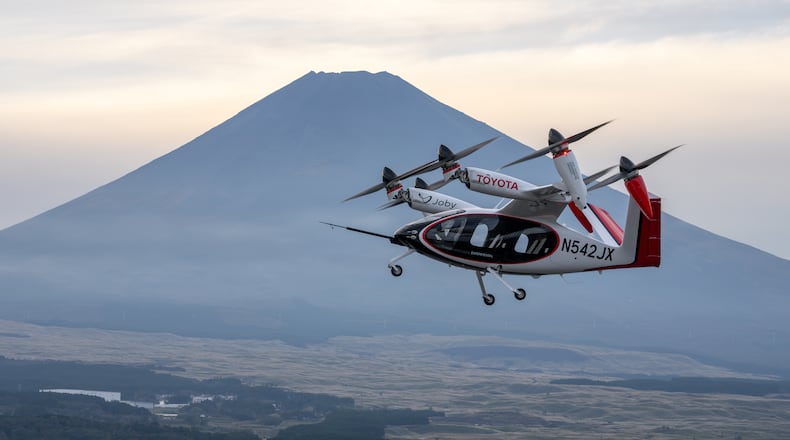The third quarter’s net loss was $20.6 million higher than the loss experienced in the second quarter. Joby attributed that to higher operations expenses, research and development costs, personnel expenses and lower contract deliverables
The operating expenses were tied to efforts to certify and make the company’s prototype aircraft, parts and test articles.
But cash continues to be an advantage for Joby as it tries to establish a new product in a new market — electric aircraft that can fly customers quickly and quietly from big urban settings to airports.
“We maintained a strong balance sheet with $710 million in cash and short-term investments,” Joby said in an earnings report released after the market’s close Wednesday afternoon.
When combined with some $222 million raised through a follow-on stock offering completed last month and expected Toyota investments totaling $500 million, the company said its cash and investments equal about $1.4 billion.
In August, Joby said it had $825 million in cash and short-term investments at the end of the second quarter. That was down from March when Joby had more than $900 million in cash.
Joby also reported an adjusted EBITDA (earnings before interest, taxes, depreciation, and amortization) loss of $120 million in the third quarter. EBITDA is a key corporate measure of financial performance.
Meanwhile, Joby said it completed its first international demonstration flights, at Toyota’s Higashi-Fuji Technical Center in Japan, using Joby’s third production prototype aircraft.
Production of components for Joby electric vertical takeoff and landing vehicles (eVTOL) will begin in Dayton early next year, Greg Bowles, Joby’s head of government relations and regulatory affairs, told the Dayton Daily News in August.
About the Author


